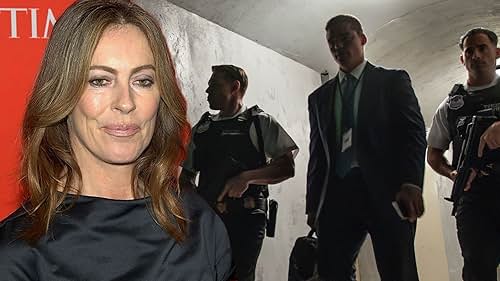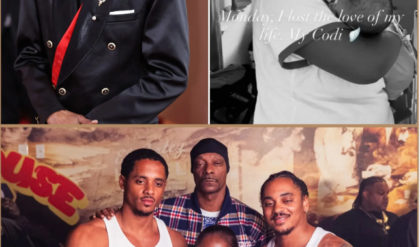‘A House of Dynamite’ Review: Kathryn Bigelow’s Riveting Thriller Is a Nuclear Nightmare

The Venice Film Festival is no stranger to prestige premieres, but when Kathryn Bigelow’s A House of Dynamite exploded onto the Lido this week, the reaction was something closer to shockwaves than polite applause. At 112 taut minutes, Bigelow delivers a political thriller so lean, so urgent, and so relentlessly crafted that the very air in the theater seemed to thrum with panic.
A Race Against Time

Bigelow, the Oscar-winning director of The Hurt Locker and Zero Dark Thirty, has long excelled at turning systems — military hierarchies, intelligence networks, clandestine operations — into cinematic battlegrounds. With A House of Dynamite, she doubles down on that instinct, presenting a film in which the “action” unfolds not on a battlefield but in rooms lit by the glow of monitors, voices crackling across phone lines, and the silence between words that might determine the fate of millions.
The premise is deceptively simple: intelligence surfaces suggesting that a rogue missile launch is imminent, with the potential to strike the United States. What follows is a chain reaction across the national security apparatus as leaders, soldiers, and analysts race to determine whether the threat is real, exaggerated, or already unstoppable.
Bigelow’s Muscle
This is the first time since 2000’s The Weight of Water that Bigelow has made a film under two hours, and the brevity only sharpens its edge. There is not an ounce of fat on this production. From the moment the screen lights up, the film thrums with urgency.
Cinematographer Barry Ackroyd (Captain Phillips, United 93) lends the film a nerve-jangling immediacy, his restless camera gliding across fluorescent-lit command centers and dimly lit intelligence bunkers, capturing faces bathed in the cold glow of data feeds. Editor Kirk Baxter (an Oscar-winner for The Social Network) cuts with surgical precision, heightening tension with every hard splice, every delayed reaction shot that forces the audience to sit in the silence. Volker Bertelmann’s score is both skeletal and suffocating — an eerie blend of pulsating strings and fractured percussion that seems to mimic a ticking clock.
And then there’s Paul N.J. Ottosson’s sound design. Phones ringing, keyboards clacking, the distant hum of servers — each sound becomes a weapon, a reminder that in Bigelow’s hands, even silence can detonate.
The Cast as Pressure Cookers

Fronting the story is Gabriel Basso, hot off The Night Agent, playing a junior analyst whose discovery sets the crisis into motion. His wide-eyed desperation anchors the narrative, giving the audience a human entry point into the nightmare of escalating protocols.
Opposite him, Idris Elba brings unyielding steel as a military general torn between duty and doubt, while Rebecca Ferguson delivers a fierce turn as a senior intelligence officer who refuses to bend under bureaucratic gamesmanship. Greta Lee adds razor-sharp intrigue as a political advisor whose loyalties blur in the fog of crisis.
Together, the ensemble functions as a living organism, their arguments, whispers, and outbursts forming the true battlefield of the film. The real explosions are verbal, the casualties emotional.
Bigelow’s Obsession With Systems
Like Zero Dark Thirty, A House of Dynamite explores the machinery of power, showing how intelligence trickles up, down, and sideways through channels riddled with miscommunication, personal ego, and outright denial. Bigelow has never been a sentimental filmmaker — her strength lies in stripping away illusions of control to show how fragile the machinery of security truly is.
Here, she’s not just crafting a thriller. She’s dissecting the anatomy of national defense in the digital age, revealing how close the line between certainty and catastrophe really lies.
The Nuclear Question
What makes A House of Dynamite so devastating is that most of its “action” is talk. Phones, screens, briefings — a world of words, where one misinterpretation could mean annihilation. In Bigelow’s hands, dialogue becomes the most volatile weapon of all.
The final act delivers not with spectacle, but with a moral implosion that forces viewers to question whether we are truly safer for having these systems — or whether they are ticking bombs themselves.
Audience Impact
By the time credits rolled in Venice, viewers sat stunned, as if reluctant to breathe again. The film is exhausting, terrifying, and deeply unsettling — but in the way that only Bigelow can achieve. She doesn’t just entertain; she rattles.
And therein lies the brilliance: A House of Dynamite is not just a story of a missile launch. It’s a story of human frailty, political gamesmanship, and the perilous illusion of control in a world always one heartbeat away from disaster.
Conclusion
Kathryn Bigelow has once again proven herself one of the most fearless directors alive. With A House of Dynamite, she distills the essence of terror not from explosions or firefights, but from the terrifyingly mundane mechanics of governance and power.
This isn’t a film you simply watch. It’s a film you survive.
📽️ A House of Dynamite will stream globally on Netflix later this year after its Venice Film Festival debut. Viewer discretion: prepare for your pulse to skyrocket.




